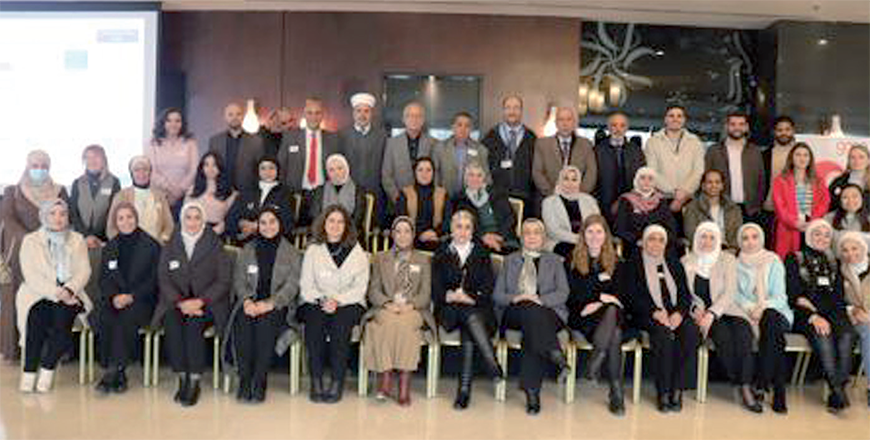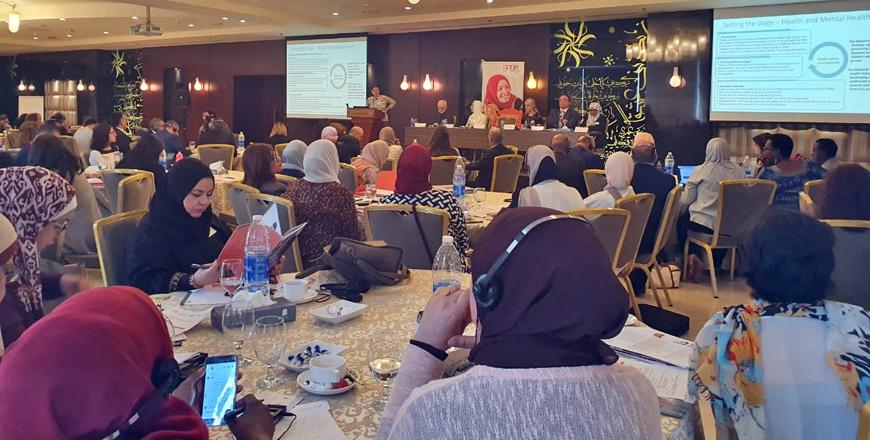You are here
GAGE launches papers on adolescent reproductive health
By JT - Jan 30,2024 - Last updated at Jan 30,2024

The GAGE programme, in cooperation with HPC, launches two policy papers on adolescent sexual and reproductive health on Monday (Photo courtesy of HPC)
AMMAN — The Gender and Adolescence: Global Evidence (GAGE) programme, in cooperation with the Higher Population Council (HPC) and ShareNet Jordan, launched two policy papers on adolescent sexual and reproductive health, after a meeting held on Monday with the participation of numerous organisations, United Nations agencies, as well as governmental and non-governmental bodies.
Based on a longitudinal study involving 3000 adolescents across Jordan, the two papers emphasised the facilitation of programmes providing reproductive health services to all adolescents. They also highlighted the challenges faced by adolescents in the disadvantaged communities of Jordan, opening the discussion on how to address these obstacles and how programmes can respond to them.
The study unveiled that the girls had greater access to information about puberty than boys: 93 per cent against 72 per cent, primarily because mothers (43 per cent) tend to talk to their children about pubertal changes, but not fathers (9 per cent).
The study also highlighted that menstruation affects the daily activities of more than half of the girls (56 per cent) and that almost half of them felt embarrassed (39 per cent) or afraid (14 per cent) to ask family members to buy menstrual supplies. About 57 per cent of adolescent girls reported adequate menstrual management facilities at school, while the rest of them indicated a lack of sanitary facilities, privacy and water.
The girls with disabilities reported that they were least able to access school facilities (44 per cent), due to the lack of equipment for people with special needs and the lack of teaching assistants.
The study also revealed that around 81 per cent of the girls who had married as children had already begun child-bearing, and that motherhood rates among girls married in childhood were higher than their peers married as adults (89 per cent).
Attitudes regarding spousal violence among the young men in the study were also worrying: 75 per cent of them agreed that wives owed their husbands complete obedience.
During the opening session, the HPC secretary-general, Issa Masarweh, highlighted the national efforts in creating a favourable policy and programme environment to support the protection of adolescents and reduce the dangers to which they are exposed.
This requires that health education becomes a part of the regular school curriculum, as well as strengthening the role of the parents and enhancing the dialogue between parents and children.
These issues are critical in advancing progress in regard to Jordan’s commitment towards the international Sustainable Development Goals 2030 as well as the goals of the National Population Strategy 2021-2030 and the Reproductive and Sexual Health Strategy 2020-2030.
Related Articles
AMMAN — The COVID-19 pandemic has “laid bare” health and socio-economic challenges that directly impact all population groups, particularly
AMMAN — Exploring adolescent experiences amongst the most vulnerable children and adolescents in Jordan from refugee camps, informal tented
AMMAN — The Higher Population Council (HPC) participated in a workshop on "Health Care for Refugees in Humanitarian Crisis Situations" organ


















